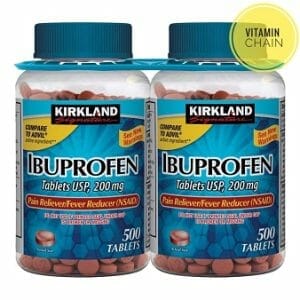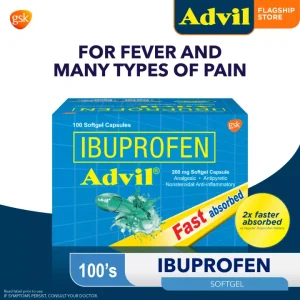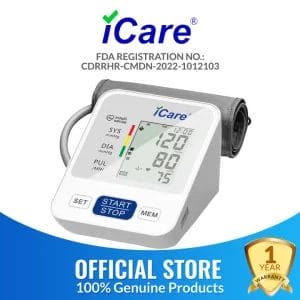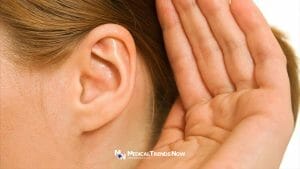Table of Contents
Headaches are a common health concern experienced by many people throughout the world. In the Philippines, headaches can be caused by various reasons, and treatments for them vary as well. While traditional remedies provide relief to some, there are also pharmaceutical and natural treatments available for those seeking more permanent solutions. This article will explore different treatments for headaches in the Philippines, including prescription medications, over-the-counter (OTC) drugs, and herbal alternatives.
Headaches are a common medical issue that can be caused by various factors such as stress, poor diet, dehydration, and even lack of sleep. In the Philippines, there are various methods to treat headaches, ranging from traditional remedies to over-the-counter medications.

Common Types of Headaches
Headaches are one of the most common ailments that can affect people in the Philippines. There are various types of headaches, including tension headaches, cluster headaches, migraine, and sinus headaches. Treatment for these types of headaches usually depends on the underlying cause and severity of the symptoms.
Headaches are a common medical complaint affecting people from all walks of life. In the Philippines, many Filipinos suffer from different types of headaches, making it important to understand the causes and treatments available.
Tension headaches are one of the most common types of headaches in the Philippines. They’re characterized by a dull, tight pressure around your head that can last for days or even weeks. Treatments for this type include relaxation techniques such as yoga and massage therapy. Over-the-counter medications like ibuprofen can also be taken to relieve symptoms.
Cluster headaches are another painful condition experienced by some Filipinos that cause intense pain on one side of the head near the eye or temple area. These usually happen in cycles over several days or weeks and may require prescription medications to treat them effectively.

What are the Common Causes of Headaches?
Headaches can be caused by various factors, ranging from physical to mental stress. While most headaches are harmless and go away on their own, it is important to understand their potential causes of them.
Stress
One of the most common causes of headaches is stress. Stress can manifest physically in the form of tension that builds up in the body, leading to chronic pain or a headache. Stress can also increase blood flow around the head and neck area, resulting in a throbbing sensation.
When an individual experience prolonged or heightened levels of stress, they are more likely to suffer from frequent headaches as well as migraine attacks. Stress-induced headaches may be accompanied by other symptoms such as nausea, light sensitivity, and difficulty concentrating.

Lack of Sleep
Sleep deprivation is defined as not getting an adequate amount of sleep on a regular basis, which has been linked to the occurrence of headaches in both adults and children. Without enough sleep, the body’s natural rhythm is disrupted, and it becomes fatigued, leading to increased levels of stress hormones like cortisol, which can trigger tension-type headaches. Additionally, when people don’t get enough restful sleep, their bodies become dehydrated due to lowered production of antidiuretic hormone (ADH).
![Sleepasil Melatonin 500mg 10 Capsules [For Sleep, Stress, and Anxiety]](https://e52hyu4yuyt.exactdn.com/wp-content/uploads/2023/03/Sleepasil-Melatonin-500mg-10-Capsules-For-Sleep-Stress-and-Anxiety-278x300.webp?strip=all&lossy=1&ssl=1)
Dietary Causes
Dietary factors that can contribute to headaches include eating foods that contain tyramine, monosodium glutamate (MSG), nitrates or nitrites, and caffeine. Tyramine is an amino acid found in aged cheeses, pickled herring, and other fermented foods; MSG is commonly added to Chinese food and canned vegetables; nitrates/nitrites are often used as preservatives in cured meats; and caffeine can be found in coffee, tea, chocolate, and energy drinks.
In addition to these substances, dehydration can cause headaches as well. Drinking plenty of fluids throughout the day helps maintain hydration levels which may reduce headache occurrences.

High Blood Pressure
High blood pressure is also a common cause of headaches. This condition occurs when the force of the blood flow in your arteries is too high, leading to tension in the walls of your vessels and resulting in pain.
The exact cause of high blood pressure is not known, but it can be linked to lifestyle factors such as smoking, alcohol consumption, and unhealthy diets. It can also run in families or be caused by medical conditions like diabetes or kidney disease.
High blood pressure-induced headaches may range from mild to severe and usually start at the back of the head and spread toward your temples or forehead. If you experience frequent headaches accompanied by dizziness, chest pains, or vision changes, you should seek medical attention immediately, as this could indicate a more serious underlying issue.

Hormonal Changes
While there are many causes, research has identified hormonal changes as one of the most prominent. Hormonal fluctuations can affect our bodies in several ways and often result in headaches.
Hormones play an important role in regulating several physiological functions and processes within the body, such as metabolism, growth, and development; when hormones become imbalanced due to external factors like stress or aging, it can lead to physical symptoms such as headaches. Certain hormones, like estrogen for example, can cause blood vessels to swell and constrict, which can trigger migraine-like headaches that are often accompanied by nausea or sensitivity to light or sound.
Additionally, hormonal shifts during puberty or menopause may also be linked with headache intensity and frequency.

Medication Side Effects
One potential cause of headaches is medication side effects, which can range in severity depending on the drug and individual.
Medication side effects can cause an array of issues, including migraines and tension-type headaches. Depending on the type of medication taken, side effects can range from mild discomfort to severe pain. Common medications known to have headaches as a potential side effect include beta-blockers, corticosteroids, and nonsteroidal anti-inflammatory drugs (NSAIDs). These types of drugs work by affecting hormones or neurotransmitters in the body, which can lead to changes in blood flow in the brain, causing headaches. In some cases, stopping or changing the medication may be required for relief.

Environmental Factors
Environmental factors can play an important role in causing headaches in both adults and children. The most frequent environmental causes of headaches include exposure to loud noises, cigarette smoke, changes in weather conditions, and certain odors.
Noise-induced headaches occur when a person is exposed to loud sounds for an extended period of time or even for a single moment. These types of headaches may cause neck pain, dizziness, blurred vision, nausea, and tinnitus (ringing in the ears). Cigarette smoke has been found to be one of the most common triggers for headache sufferers as it often contains various chemicals which can worsen symptoms.
Changes in weather conditions, such as high humidity or extreme temperatures, can also cause headaches.

What are the Treatments for Headaches in the Philippines
Managing headaches involves an individualized approach that considers the Filipino patient’s symptom history and lifestyle habits.
Various treatments are available for headaches in the Philippines that include medications such as pain relievers (e.g., ibuprofen), anti-inflammatory drugs (e.g., aspirin), muscle relaxants, and anti-depressants; non-drug methods including biofeedback, relaxation techniques/therapy, yoga/meditation; physical therapies like massage therapy; acupuncture; dietary changes; and lifestyle modifications like regular exercise and stress reduction activities. Each treatment should be tailored to the Filipino patient’s unique needs based on their medical history and other factors.

OTC Remedies in PH
In the Philippines, it is estimated that up to 80% of adults suffer from occasional headaches, with many of them resorting to over-the-counter (OTC) remedies in order to find relief. There are several OTC remedies available in the Philippines that can help alleviate headache pain.
Paracetamol is one of the most popular OTC drugs used for treating headaches in the Philippines. It works by blocking pain signals sent from the brain to other parts of the body, helping to reduce inflammation and decrease pain levels associated with headaches. Other OTC medications, such as ibuprofen and aspirin, can also be taken to reduce inflammation and lessen headache symptoms. Additionally, there are various herbal supplements on sale in pharmacies across the country that can provide relief from headaches when used correctly.

Treatment Options for Headaches in the Philippines
Treatment options for headaches among Filipinos vary depending on the severity of the condition.
Over-the-counter analgesics like ibuprofen and paracetamol are often used to relieve mild headaches. These medications should not be taken more than four times a day and should not exceed the recommended dosage. Other treatment options include a hot or cold compress over the forehead, neck massage, relaxation techniques such as deep breathing exercises, avoiding caffeine and alcohol consumption, exercising regularly, and getting adequate restful sleep.
Alternatives to Medication
Headache can be a debilitating condition if left untreated, but there are several alternatives to medication that can provide relief.
In the Philippines, traditional remedies for headaches include massage therapy and natural herbs such as ginger root or lavender oil. Massage therapy helps reduce tension in the head and neck area, while natural herbs reduce nerve inflammation that often causes headaches. Additionally, some sufferers have found relief from dietary changes such as reducing sugar intake or avoiding foods high in sodium. Other lifestyle modifications like increasing exercise or reducing alcohol consumption may also help lessen headache symptoms over time.
Final Thoughts: Treatments for Headaches in the Philippines
In conclusion, headaches are a common condition in the Philippines, with the burden of headache-related disability estimated at 5.8%. While there is a wide range of strategies available to treat them, it must be emphasized that comprehensive headache management should focus on realistic treatments that are tailored to each individual patient in the Philippines. It is also important for healthcare providers to be aware of the barriers and gaps in headache care to provide better support for Filipino patients.
Sources
- Headaches: Treatment depends on your diagnosis and symptoms – Mayo Clinic
- Migraine – Diagnosis and treatment – Mayo Clinic
- Headache Treatment and Headache Relief – Stanford Health Care
- Headache: What It Is, Types, Causes, Symptoms & Treatment – Cleveland Clinic
- Ways to Get Rid of a Headache Quickly – WebMD
- Headache treatment in adults (Beyond the Basics) – UpToDate
- 18 Remedies to Get Rid of Headaches Naturally – Healthline
- Migraine – Treatment – NHS
- Headaches: Causes, types, and treatment – Medical News Today
Disclaimer
This website is intended to educate both members of the general public and those working in the medical field on the prevalence, causes, and methods for preventing, diagnosing and treating diseases that affect people throughout their lives. This website’s content is provided solely for informational reasons and is not meant to serve as a substitute for the advice of a qualified medical practitioner.













